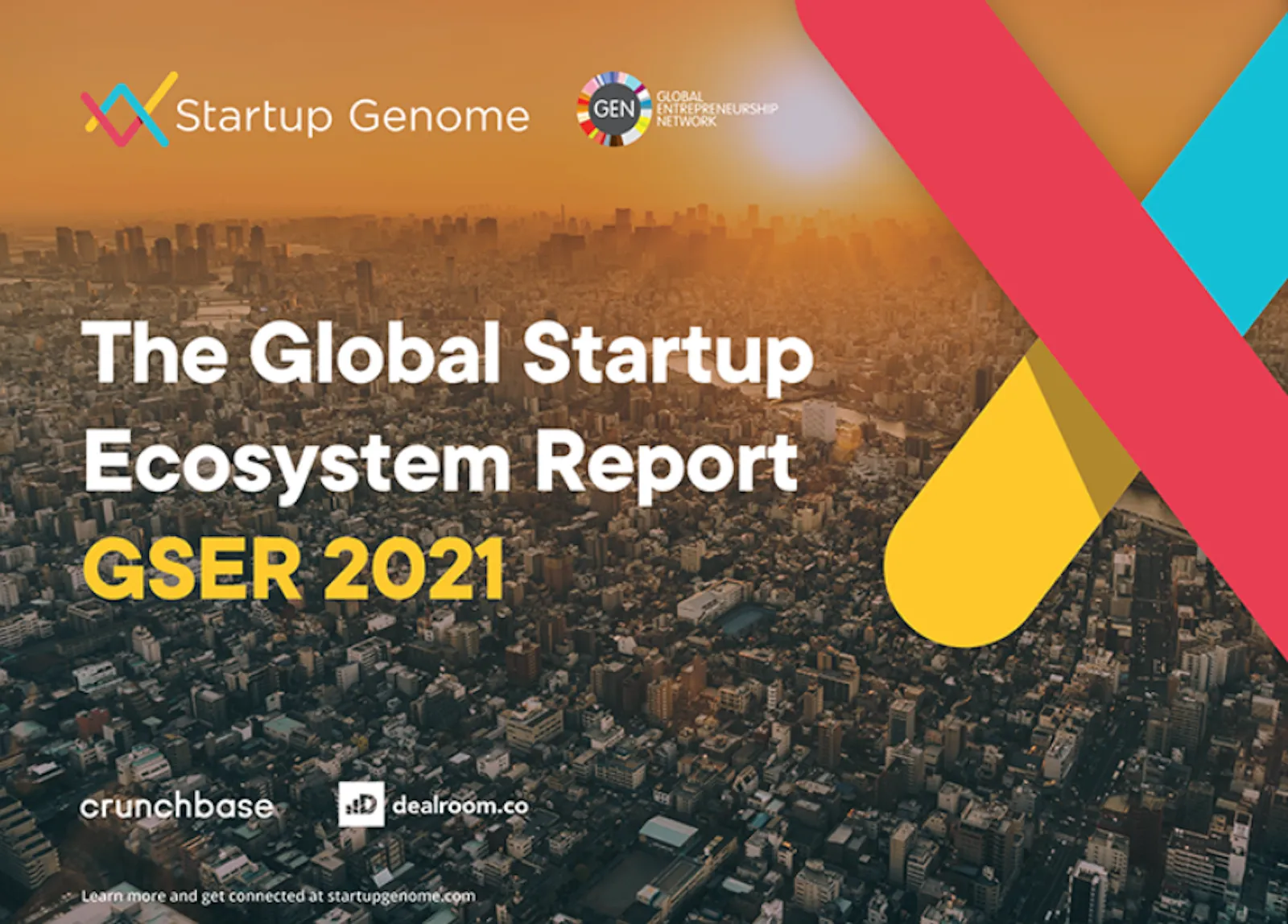October 11, 2021
Global Startup Ecosystem Report 2021: 8 key takeaways for the Dutch startup ecosystem

With a tenth of the population of London, the larger area of Amsterdam (+100km) may be a relatively small delta region, but as a startup ecosystem, it packs an increasingly big punch.
Over the last decade, Amsterdam has been rising fast in terms of the overall value of its startup ecosystem. Startups founded since 2000 in the city have a combined value of more than $86B, up from just $12B in 2015, the third-largest total in Europe. Since 2011, Amsterdam’s region has seen a whopping 53% average year-on-year growth, compared to London’s rate of 8%.
Nevertheless, several challenges remain, particularly in the investment sector. While Amsterdam generates more startups per capita than any other European hub (1.10 per 1000 residents), but the VC investment per capita trails Berlin, London, and Stockholm with a slower pace of growth. The ecosystem heavily relies on local investors – 54% of capital flowing into the ecosystem comes from domestic sources, 25% from the rest of Europe, and 21% from the rest of the world.
As part of the report, the top 30+ global startup ecosystems have been ranked based on 6 Success Factors (performance, funding, connectedness, market reach, knowledge, talent), which are further elaborated in the following sections. Considering these criteria, Amsterdam-Delta ranks #13 globally (which is one position down compared to 2020).
While scoring relatively high in the number of successful startups in the ecosystem (7 out of 10), Amsterdam-Delta scores 6 out of 10 in the number of exits over $50 million and $1 billion, plus growth in the number of exits; and gets 4 out 10 for the economic impact of the ecosystem.
The Performance Success Factor Assesses:
Source: GSER 2021
When it comes to funding, the Dutch startup ecosystem scores 7 out of 10 in terms of the quality, number, and level of activity of local investors as well as the overall volume and growth of the early-stage funding available for startups.
The Funding Success Factor Assesses:
Source: GSER 2021
When assessing the market reach, we see that Amsterdam-Delta has a stronger global than local Market Reach, as it scores 8 out of 10 in Globally Leading Companies, opposed to 2 out of 10 in Local Market Reach. The extent to which Dutch policy encourages the commercialisation of tangible IP is granted a 6 out of 10.
The Market Reach Success Factor Assesses:
Source: GSER 2021
Amsterdam Delta ranks high on Local Connectedness (9 out of 10) and ecosystem Infrastructure (8 out of 10).
The Connectedness Success Factor Assesses:
Source: GSER 2021
The Dutch startup ecosystem scores high (9 out of 10) in the number of Life Sciences-focused universities, degree programmes, and graduates. Likewise, the quality of Life Sciences instruction and research at local universities has been granted a 9 out of 10.
The Talent Success Factor Assesses:
Tech Talent
Life Sciences Talent
Experience
Source: GSER 2021
Compared to other global ecosystems, Amsterdam-Delta underperforms in the Patents metric (3 out of 10), which measures the volume, complexity, and potential of Life Science patents generated in the ecosystem. The production of Life Sciences research at the country level is also lagging behind, as we score 5 out of 10 in that regard.
The Knowledge Success Factor Assesses:
Source: GSER 2021
Based on the report’s insights, we see that while we thrive on our local and international connections as well as benefit from a high-quality research infrastructure, the Dutch startup ecosystem still needs to strengthen its positions within several focus areas, such as the quality and volume of Life Sciences research produced in the country, as well as on the level of involvement of the local Dutch investor base and the size of available early-stage funding.
What can we do to use the momentum?
It is essential to improve the Netherlands’ tax regime to make it easier for early-stage businesses to attract talent with stock options and promote the reinvestment of investors’ earnings. Providing additional funding for coding bootcamps, STEM programmes, and other initiatives to develop the tech workforce will help ensure startups can find the diverse talent they need to continue to grow. Increased outreach to international talent could help on this front as well. Finally, programmes focused on diversity and inclusion could widen the impact of an ecosystem that still trails comparable hubs in female participation.
With incredible talent and increasing access to the funds necessary for companies to dream big, the future looks bright for Amsterdam startups. This momentum also seems to be lifting nearby cities such as Rotterdam, Utrecht, and Eindhoven as well, meaning the entire Amsterdam Delta, and the Dutch startup ecosystem as a whole, are poised to continue growing rapidly in the years to come.

 The Dutch entrepreneurship paradox: why does the Dutch scaleup ecosystem...
The Dutch entrepreneurship paradox: why does the Dutch scaleup ecosystem...